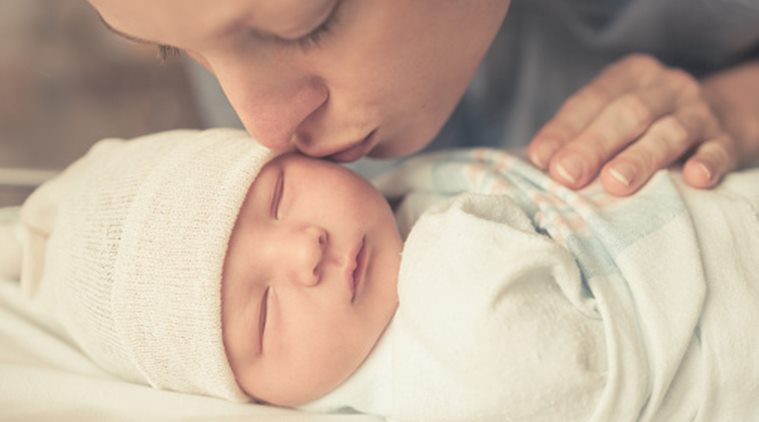Kissing a baby involves physical contact, which helps in bonding with the baby. But if it increases the risk of contracting diseases, should you at all kiss a baby?

Katie Taylor, a mother from Sunderland, first noticed a red spot on her 10-month-old daughter Lily’s face. Soon, more spots appeared leaving the baby in severe pain and unable to eat and drink properly.
Lily reportedly contracted herpes after being kissed by a relative with a cold sore. “Lily had been away with family the weekend before and I know some members suffer with cold sores. The germs are there before the cold sore which is why whoever kissed her was probably unaware until a few days after,” the mother was quoted as saying.
HSV-1 (herpes simplex virus) may not be harmful to adults but it can be fatal for babies. With a weaker immune system, babies are more vulnerable to cold sores. It is contagious and spreads through skin-to-skin contact like kissing. The symptoms include rashes or sores, high temperature, not feeding and lack of energy. If not treated, it can lead to several complications and can affect the brain, vision, hearing ability, liver, lungs and kidneys.
As per WHO (World Health Organisation), most people who have HSV-1 got it as children through dry kisses from infected people. And two-thirds of the world’s population under 50 have the infectious virus.
In 2017, parents Nicole and Shane Sifrit from Iowa lost their 18-day-old baby girl after she contracted viral meningitis caused by HSV-1, and is believed to have contracted the virus from a kiss. Another mother from UK, Claire Henderson’s one-month-old daughter also got the virus after being kissed by a visitor.
Also Read| 5 ways your child can avoid germs and increase immunity
Should you kiss a baby?
Kissing a baby involves physical contact, which helps in bonding with the baby. But if it increases the risk of contracting herpes, should you at all kiss a baby?
According to Dr Karin Nielson, professor of pediatrics, when someone with active HSV infection kisses a baby, there is a significant risk, of course.
So, before you kiss a baby, check if you are infected, and if so, avoid contact with the baby. Parents need to make sure their little one is not exposed to too many people, and allow minimum visitors to come close to him or her. Before someone wants to hold the baby and kiss, they should seek consent from parents. Do not come close to the baby if you show signs of illness like cough, runny nose, sore throat or rash. Wash your hands before holding a baby.
Source: Read Full Article






